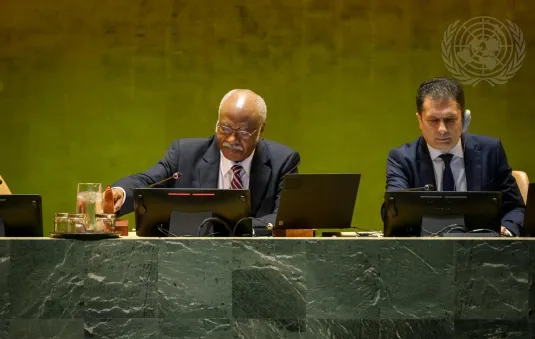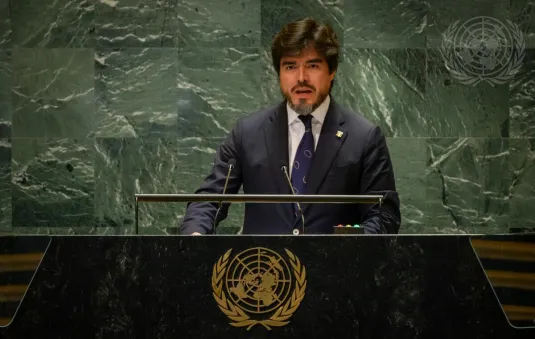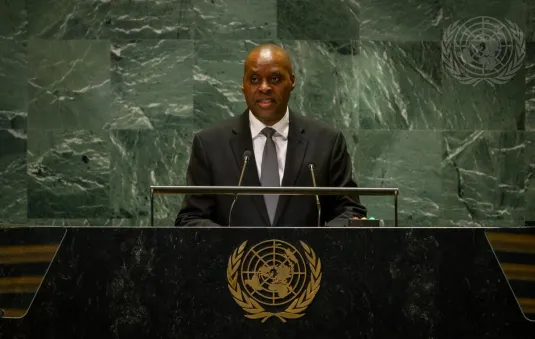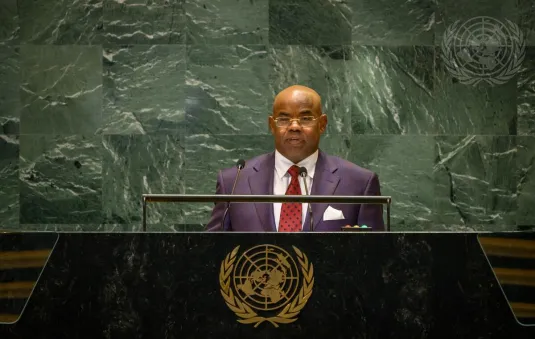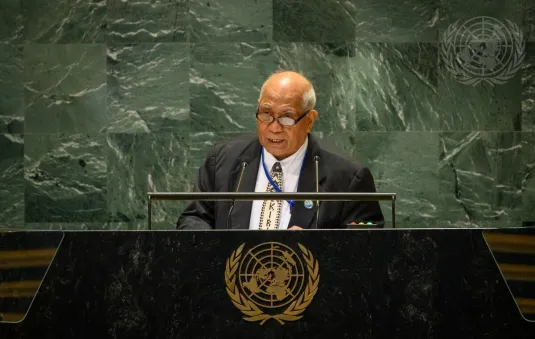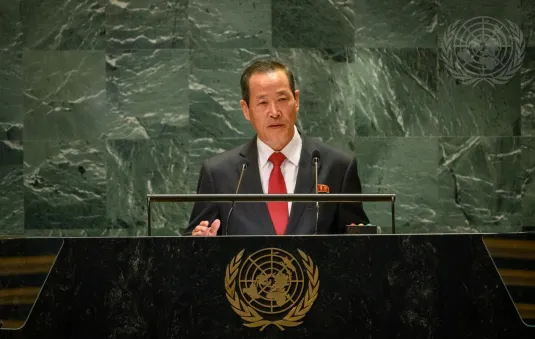General Debate of the 79th Session
The debate of the 79th session is closed. Links to video on-demand and statements are available below.
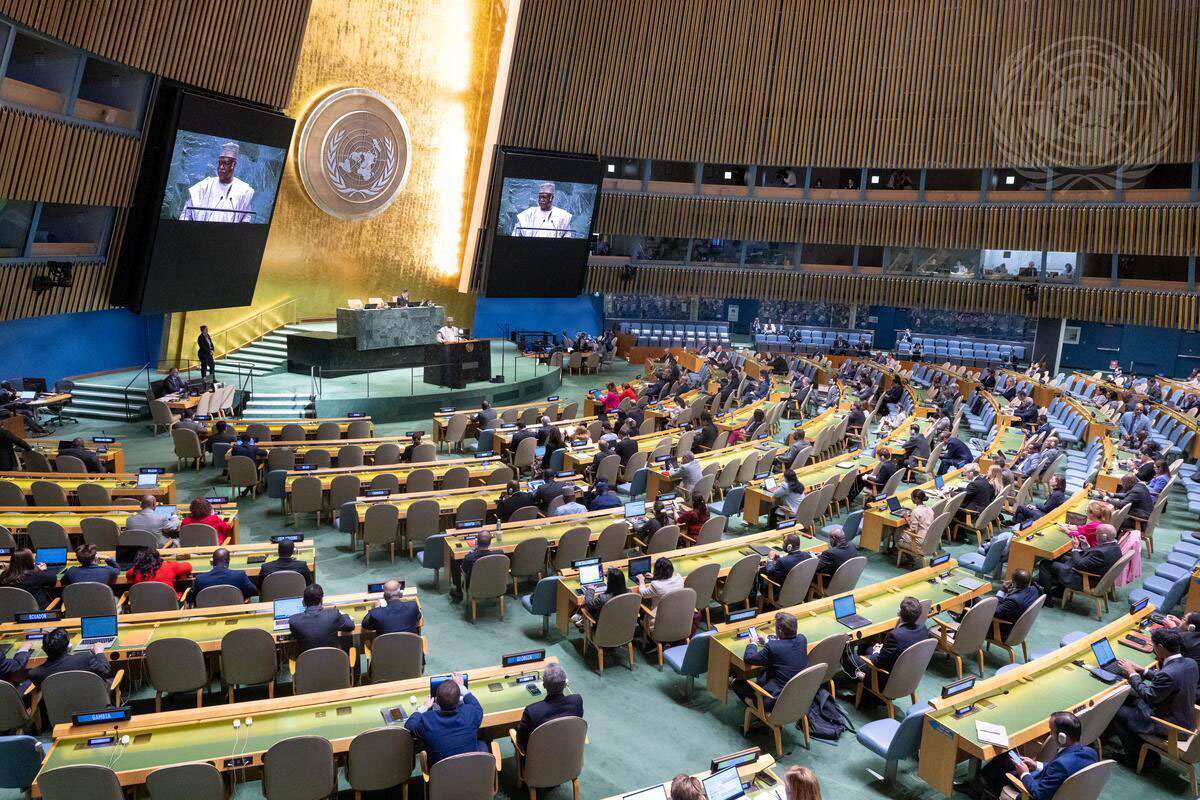
Coming up next
Previously
Daily schedule
- SEP 24 TUE
- SEP 25 WED
- SEP 26 THU
- SEP 27 FRI
- SEP 28 SAT
- SEP 30 MON
Secretary-General
President of the General Assembly
President
President
President
King
President
President
President
Amir
President
President
President
President
President
President
President
President
President
President
President
President
President
President
President
President
President
President
Sovereign Prince
President
Vice-President
Crown Prince
President of the Council of Ministers
Head of Government
Prime Minister

At every step, our Organization and our personnel will continue to stand in solidarity with the people of the world through these trying times, as we seek to forge a more peaceful, healthy, equal and prosperous future together.

Where do country representatives sit?
Sitting arrangements in the General Assembly Hall changes for each session. During the 79th Session (2024-2025), Yemen occupies the first seat in the Hall, including in the Main Committees (followed by all the other countries, in English alphabetical order).

A Viking gavel?
In 1952, Iceland, believed to be the oldest democracy in the world, presented the UN with a special gavel. This gavel has since been used to open and close meetings open or closed, mark the approval of the agenda, etc. and sometimes to restore order.

How long are the speeches?
A voluntary 15-minute limit is asked to be observed, but some speeches are longer. The record for the general debate? Cuba, in 1980: 269 minutes. 1960 was the year with most very long statements: Guinea (144 minutes), USSR (140 minutes) and Indonesia (121 minutes).

The 30 words most used during the debate
Here’s a glimpse of the priorities and concerns raised by Member States in their statements during the general debate of the 79th session so far (as analyzed by generative AI). The word cloud displays the top 30 words used, and will be updated daily during the debate.
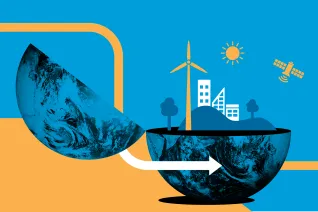
This Summit aims to reaffirm commitments to the Sustainable Development Goals (SDGs) and the United Nations Charter while enhancing cooperation and laying the foundations for a reinvigorated multilateral system and will result in a negotiated Pact for the Future.

The past year has tested humanity in every way. Despite the obstacles, the commitment of the UN staff to a better future shines through in all that they do. Their resolve is to achieve results for the people of the world and to deliver the help and hope that every person deserves.
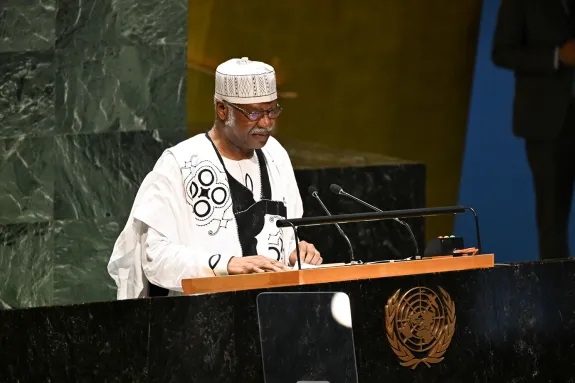
His Excellency Philemon Yang, President of the 79th session of the United Nations General Assembly. UN Photo/Evan Schneider
The General Debate of the United Nations General Assembly is the opportunity for Heads of State and Government to come together at the UN Headquarters and discuss world issues.
On this site, you will find a daily list of speakers, with links to individual pages for each speaker. These pages will be published as soon possible and will present information pertaining to the speaker: an on-demand video, the statement (.pdf) and a summary of the statement, a downloadable photo, and audio files (.mp3).

